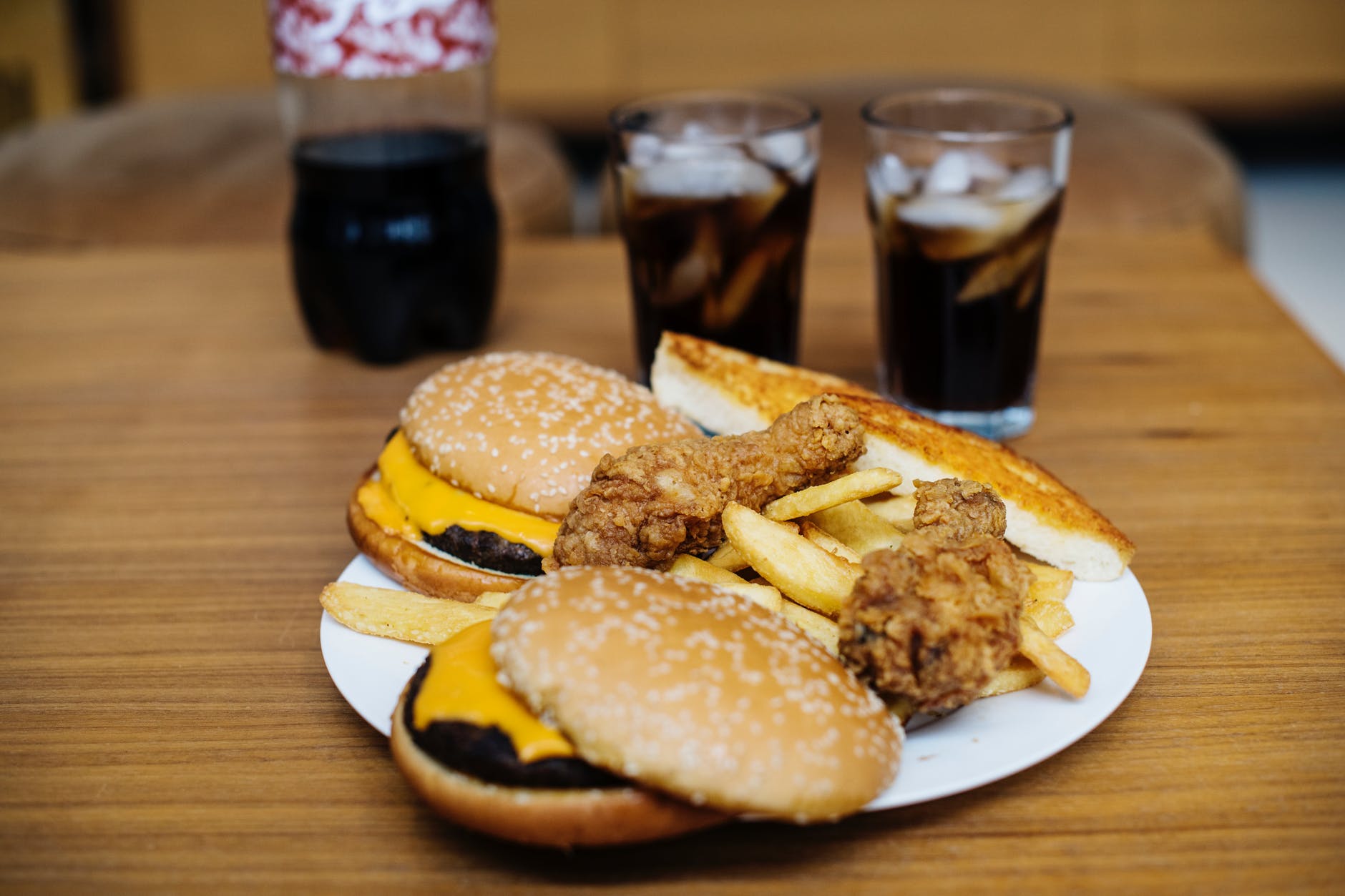Junk food is used to describe food and drinks low in nutrients (e.g. vitamins, minerals and fibre) and high in kilojoules, saturated fat, added sugar and/or added salt. The term ‘Junk food’ was coined by Michael Jacobson, director of Center for Sc ience in 1972 in the public interest who wanted to raise public attention about the issue of foods with a high caloric value and a low nutritional value. Various types of junk food is availab le in market out of which the most popular junk food is soft drink, pizza, hamburgers, potato chips, ice crea ms, hot dog, pakora, chowmins, French fries, cheese chili, pav bhaji etc.
Competitive foods are sold through a la carte lines, vending machines, school canteens/stores, and fundraisers and, in contrast to the federally-reimbursable school meal programs, are not subject to federal nutritional standards. As a result, competitive foods account for much of the variation in the food environment across schools. Competitive foods are available in a large share of schools, although the availability of these foods varies significantly across elementary, middle, and high schools.
What are gut bacteria?
Bacteria and other organisms that live inside the intestines are called as gut flora. At birth, the entire intestinal tract is sterile; the infant’s gut is first colonized by maternal and environmental bacteria during birth and continues to be populated through feeding and other contacts. In adult there are 10x the number of microbial cells in the human gut than in the whole human body, totaling roughly 100 trillion microbes representing as many as 5,000 different species and weighing approximately 2 kilograms. Collectively referred to as the “second human genome”. Your gut microbiome influences your digestion, immune system, metabolism, and hormones. Vitamins such as biotin and vitamin K are made by gut flora. It even affects neurotransmitters that control mood and brain activity. Living inside of your gut are Like a fingerprint, each person's microbiota is unique: The mix of bacteria in your body is different from everyone else's mix. It’s determined partly by your mother’s microbiota the environment that you’re exposed to at birth and partly from your diet and lifestyle.
Effect of junk food on gut bacteria
Studies in lab mice have shown that when fed an intensive high fat diet their microbes change dramatically and for the worse. This can be partly prevented by using probiotics; but there are obvious differences between us and lab mice, as well as our natural microbes.
A recent study took a group of Africans who ate a traditional local diet high in beans and vegetables and swapped their diet with a group of African Americans who ate a diet high in fat and animal proteins and low dietary fibre. The Africans fared worse on American-style food: their metabolism changed to a diabetic and unhealthy profile within just two weeks. The African Americans instead had lower markers for colon cancer risk. Tests of both groups showed very different microbiomes, the populations of microbes in their guts.
Fast food diets are causing arthritis and debilitating joint pain but not by causing us to pile on the pounds, as scientists have shown an explosion of junk-hungry bacteria in the gut are responsible. US researchers have shown it is the body’s response to unhealthy gut bacteria that speeds up this process, rather than the weight itself, which could mean heavy people with a balanced bacterial mix can avoid arthritis. Bacteria that thrive on a high fat junk food trigger inflammation, the body’s response to stress and foreign invaders, when they build up in intestines. This causes the immune system to attack its own cells and cartilage in joints like the knee, which are subject to a lot of wear and are particularly susceptible. But these effects were completely neglected by introducing a “prebiotic” supplement, a sweetener called oligofructose, which encourages growth of the sort of health-promoting bifidobacteria, which is commonly added to yoghurt drinks.
Just a few days of junk food could change your metabolism. A small study of 12 healthy young men found eating junk food for just five days led to a reduced ability of their muscles to turn glucose into energy, even though they didn’t eat more calories as part of the study. Over the long term, this change could lead to insulin resistance and eventually type 2 diabetes.
Just one serving of junk food can increase inflammation throughout your body. Further, an Australian study suggests that in people with asthma, a fast food meal high in saturated fat can increase inflammation in the airway, potentially making an asthma attack more likely. . So it seems the quick hit of junk food, while fleetingly rewarding, does carry short-term risks.
Other health effects of Junk Food
- He art diseases
- Obesity
- Diabetes mellitus
- Dental cavities
- Cancer
- Asthma
- Neurological disorders
- Behavioural problems
Source: J Policy Anal Manage. 2012 Spring; 31(2): 312–337, https://doi.org/10.22270/jddt.v2i3.132, independent.co.uk, theconversation.com, washingtonpost.com, doi: [10.1097/JCN.0000000000000166]
